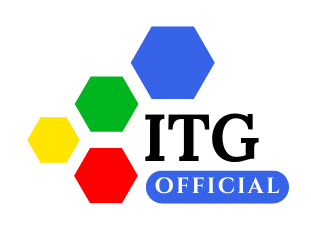Content Marketing Trends in 2025 are changing rapidly with the growth of AI, personalized user experience, and evolving search engine algorithms. To stay ahead in digital marketing, businesses must update their strategies according to these upcoming shifts. Whether you’re a marketer, freelancer, or business owner, understanding these trends is essential for long-term growth.
1. AI-Powered Content Creation
One of the major content marketing trends in 2025 is the widespread use of AI tools like ChatGPT and other content generators. These tools help marketers create high-quality content faster, saving both time and money. However, human creativity and emotional connection will still play a vital role in storytelling.
2. Voice Search Optimization
With the rise of smart speakers and mobile assistants, optimizing content for voice search is now a necessity. In 2025, more than 60% of searches are expected to be voice-based. Content must be conversational and structured to answer direct questions.
3. Hyper-Personalized Content
Generic content is no longer effective. Today’s users expect personalized content based on their behavior, preferences, and past interactions. AI helps analyze user data to deliver highly relevant blog posts, emails, and social media updates tailored to individual needs.
4. Short-Form Video Content
Short-form videos will continue to dominate platforms like Instagram Reels, YouTube Shorts, and TikTok. Content marketing strategies in 2025 must include engaging, bite-sized videos that deliver value quickly and keep the audience hooked.
5. SEO-Integrated Content Strategy
SEO remains the backbone of content visibility. But in 2025, content will need to be optimized not only for Google but also for platforms like YouTube, Pinterest, and even Instagram. This includes optimizing for long-tail keywords, adding schema markup, and updating older content.
6. Focus on First-Hand Experience and E-E-A-T
Search engines are prioritizing content that reflects first-hand experience and demonstrates Expertise, Authoritativeness, and Trustworthiness (E-E-A-T). In 2025, sharing real-life examples, customer success stories, and personal case studies will help improve rankings and engagement.
7. Interactive & Immersive Content
Static blog posts are being replaced by interactive formats such as quizzes, polls, carousels, and even AR experiences. These increase time on site and provide a memorable user experience—two key ranking signals for search engines.
Content Marketing Trends in 2025 for Freelancers & Small Businesses
These trends are especially important for freelancers and small business owners. With limited resources, adopting the right content strategy gives them a competitive edge. By using AI tools, creating targeted content, and leveraging local SEO, small teams can compete with larger agencies.
Conclusion: Why You Should Follow Content Marketing Trends in 2025
The digital world is evolving quickly. To remain competitive, marketers need to embrace the content marketing trends in 2025. From AI and personalization to voice search and interactive content, the future of content is all about delivering value with precision. If you want your content strategy to drive real business results, now is the time to evolve.
How Content Marketing Will Change in 2025
Digital behavior is evolving rapidly. In 2025, content marketing will become more data-driven, audience-specific, and platform-sensitive. Brands that rely only on traditional blogging will struggle. Instead, combining AI insights, user intent, and multi-channel distribution will define success.
Brands must adapt their tone and style according to the platform. For instance, a blog post and a LinkedIn post on the same topic should be written differently. The trend in 2025 is to write contextual content — optimized not just for SEO but also for platform behavior and audience mood.
In addition, trust-based content will dominate. Fake or copied information will get flagged by search engines. Google is becoming smarter at recognizing genuine, helpful, and original content written by real people. This makes it essential to develop first-hand experience-based content that resonates with users.



